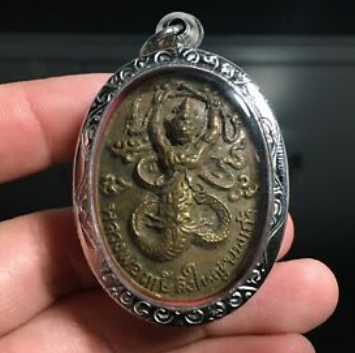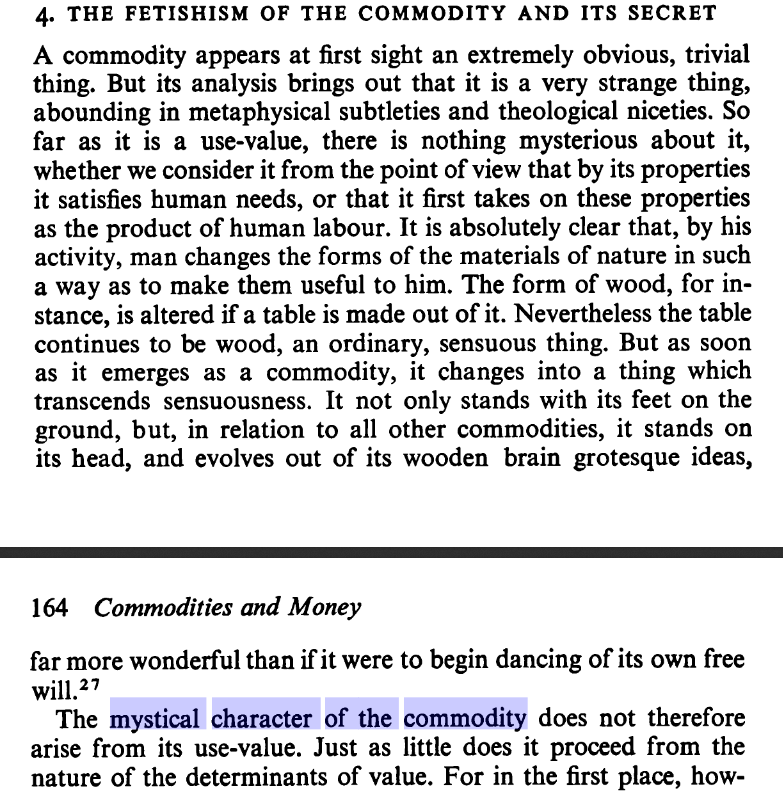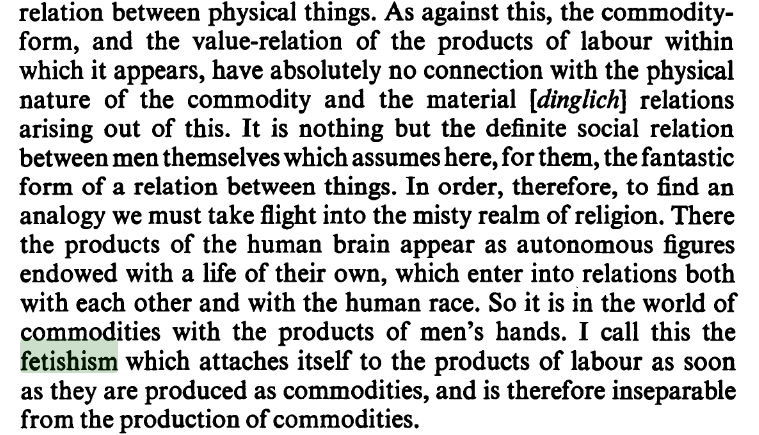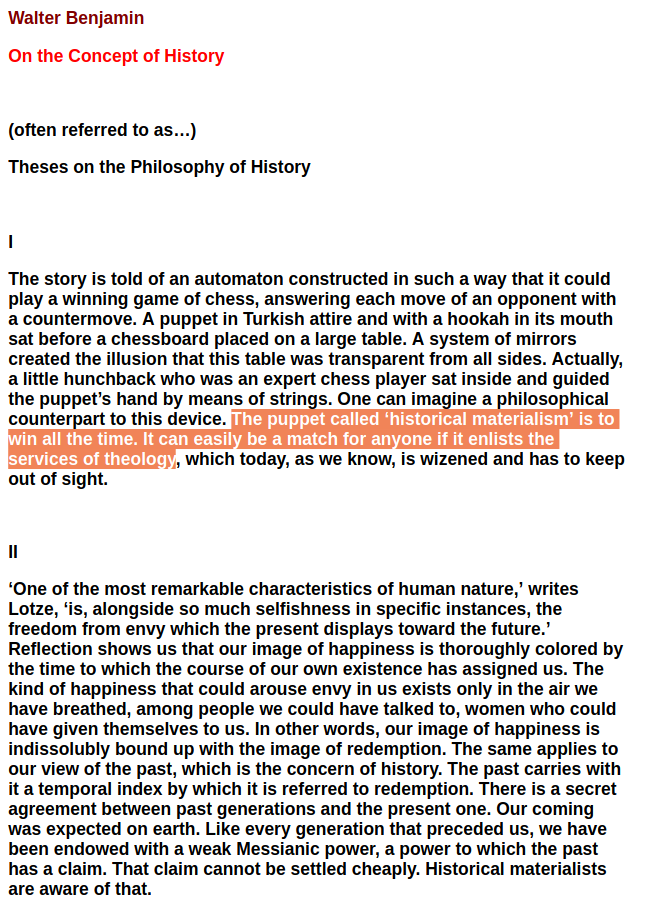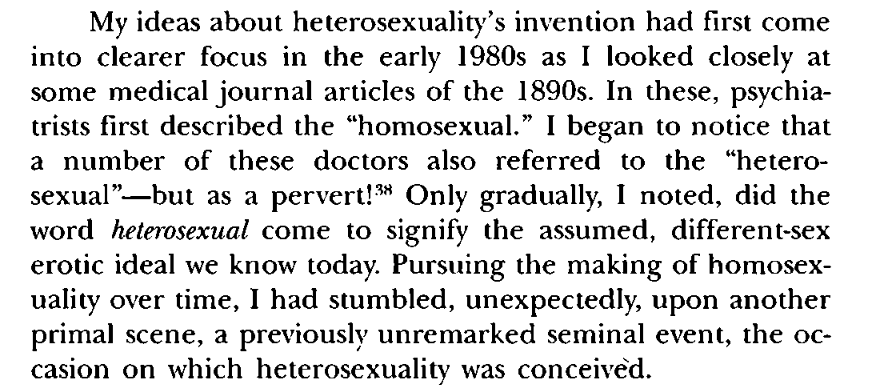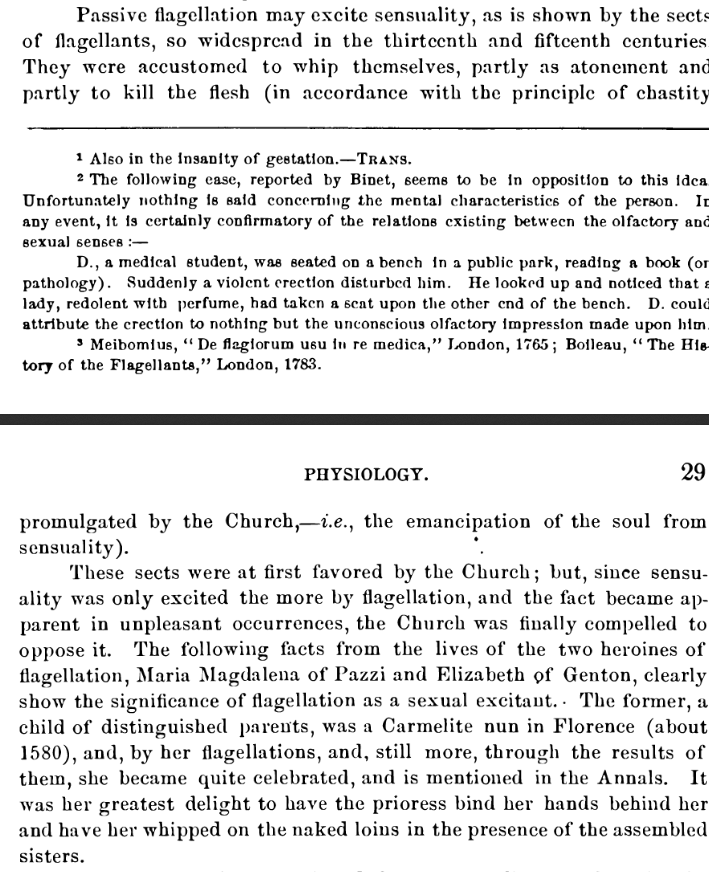The word "fetish" is very misused but I still don& #39;t quite agree with this! Here& #39;s a thread about the genealogy of sexual fetishism. https://twitter.com/daemonumx/status/1253733805334188032">https://twitter.com/daemonumx...
1. General fetishism:
To fetishize a thing is to project upon it qualities it does not have. If this projection is consistent you have a fetish.
"Fetish" is a judgement. It is cognate with "factitious," meaning artificial.
Let& #39;s first review two fetishes that are not sexual.
To fetishize a thing is to project upon it qualities it does not have. If this projection is consistent you have a fetish.
"Fetish" is a judgement. It is cognate with "factitious," meaning artificial.
Let& #39;s first review two fetishes that are not sexual.
2. Religious fetishism:
The earliest studied fetishism. Used by European anthropologists. It is the cultural practice of investing tokens with meaning they "do not have" -- the crucifix in European tradition, more dominantly objects of household deities in animist ones.
The earliest studied fetishism. Used by European anthropologists. It is the cultural practice of investing tokens with meaning they "do not have" -- the crucifix in European tradition, more dominantly objects of household deities in animist ones.
"Fetish" is a colonial word. It was used by outside observers to assess ritual objects whose significance, as outside observers, they had limited access to.
Most studied art objects as fetish are indigenous & associated with animism: voodoo, nature carvings, talismans, totem.
Most studied art objects as fetish are indigenous & associated with animism: voodoo, nature carvings, talismans, totem.
The most famous fetish in Anglo culture is the Golden Calf. Hebrews awaiting the rearrival of Moses from Mt. Sinai with the Ten Commandments melted down gold into an idol. There& #39;s much analysis on why this was distinct from, say, the Burning Bush: it was man-made & thus "fake."
(We tend to call the Golden Calf an "idol" rather than "fetish" because it has become a white myth. Occasionally queer people, religious scholars, & decolonial thinkers draw distinction between idols, charms, fetishes, talismans, totem, etc which are not important to us here.)
3. Commodity fetishism:
The idea of a commodity fetish was first presented (overtly, in this language) in Karl Marx& #39;s *Kapital*. In brief it is when we mistake economic value for labor value (i.e. "Someone must have worked hard on this because it cost me lots of money.")
The idea of a commodity fetish was first presented (overtly, in this language) in Karl Marx& #39;s *Kapital*. In brief it is when we mistake economic value for labor value (i.e. "Someone must have worked hard on this because it cost me lots of money.")
I& #39;m not a Marxist & don& #39;t want to speak too much on concepts tangential to my point of interest. I will point out a few things:
1. "Commodity fetishism" is pejorative.
2. "Commodity fetishism" appropriates anthropology of religion & is directly attached to Marxist atheism.
1. "Commodity fetishism" is pejorative.
2. "Commodity fetishism" appropriates anthropology of religion & is directly attached to Marxist atheism.
Fetish variants are all conceptually related, not truly extricable from one another. To the venal atheist capitalism itself substitutes for religion. Shrunken heads, household deities & other religious fetishes were traded economically between groups as fetish capital.
4. Sexual fetishism:
Around the era of Freud & invention of academic sexology, Europeans adopted the "fetish" of comparative religion to psychosexual development. This is explicit in what is oft cited as a first use, Alfred Binet& #39;s 1887 *Fetishism in Love*:
Around the era of Freud & invention of academic sexology, Europeans adopted the "fetish" of comparative religion to psychosexual development. This is explicit in what is oft cited as a first use, Alfred Binet& #39;s 1887 *Fetishism in Love*:
A few notes on this early use of the "sexual fetish" concept:
1. Alfred provides an incorrect etymology.
2. "Sexual fetishism" is attached to eugenic projects. (Binet invented the IQ test, etc.)
3. The concept of a sexual fetish was first applied to all sexual love.
1. Alfred provides an incorrect etymology.
2. "Sexual fetishism" is attached to eugenic projects. (Binet invented the IQ test, etc.)
3. The concept of a sexual fetish was first applied to all sexual love.
This usage is maintained in Krafft-Ebing& #39;s *Sexual Psychopathology* from 1886, where it is attributed to heterosexuality. The book however is devoted to sexual psychopaths (a label which here first names "frigidity," than biastophilia with BDSM, than "homosexual" and "invert.")
(As a sidenote, "heterosexuality" was itself early an occasional label for a kind of (purportedly) damaging sexual pathology: an overdevotion to the "opposite" sex. The right kind of sexuality here was Christian moralizing: loveless and reproductive.)
By the time Freud wrote his 1927 essay "Fetish" he could assume all knew what a sexual fetish was. For Freud all fetishes were a kind of symbolic substitute for a man& #39;s penis. We say he was "phallocentric" because phallic dominance is the materiality of all Freudian sexuality.
For someone to have a sexual fetish was for them to attribute sexuality to an object which did not intrinsically have it. Constructivist feminists like me do not believe sexuality is intrinsic to anything at all, so this concept becomes a confused one.
The concept of "religious fetishism" assumes a correct object of worship; the concept of "commodity fetishism" assumes a correct value for price; the concept of "sexual fetishism" assumes a correct target for sexuality.
Religious fetishism and sexual fetishism are immediately related. A fetishist (in the word& #39;s old usage) may come to attribute religious significance to their object of desire. (Others may do this for them; transgender people were occasional mystics in many cultures.)
Krafft-Ebing himself was attacked by Catholic authorities because he associated Christian martyrdom with BDSM fetishism. Freud wrote of all religion as a psychic need for a father figure, a phallic figure, and saw totem as designed to prevent incest.
Commodity fetishism and sexual fetishism are immediately related. Luce Irigaray simply asserts that women are sexual commodities. Walter Benjamin speaks to Marxist historicism as a kind of blind-faith marriage.
5. Conclusion
As a trans woman my experience & my people& #39;s historical experience of the word "fetish" often leads me to believe we shouldn& #39;t have the word at all. It can usefully name damaging sexual behavior, but usually carries other presumptions we are not meant to question.
As a trans woman my experience & my people& #39;s historical experience of the word "fetish" often leads me to believe we shouldn& #39;t have the word at all. It can usefully name damaging sexual behavior, but usually carries other presumptions we are not meant to question.
What the word "fetish" often does is group otherwise unrelated peoples under delusions of what human behavior must be. It is a word to shut down thought, to make us sexual moralists, religious moralists, economic moralists without a thought for the origin of our morals.
Final Note: "Fetish" is a wide-ranging word beyond my knowledge base & I am simply not going to debate MLs or neo-Freudians or whoever about it. I am noting history of how a word is used & what I see as patterns in its usage; that is all. Comment if you want and don& #39;t be a jerk.

 Read on Twitter
Read on Twitter



